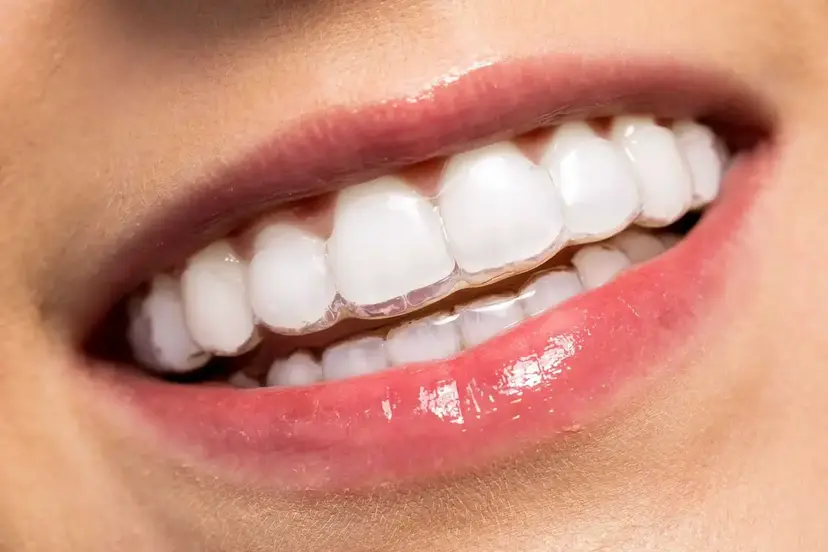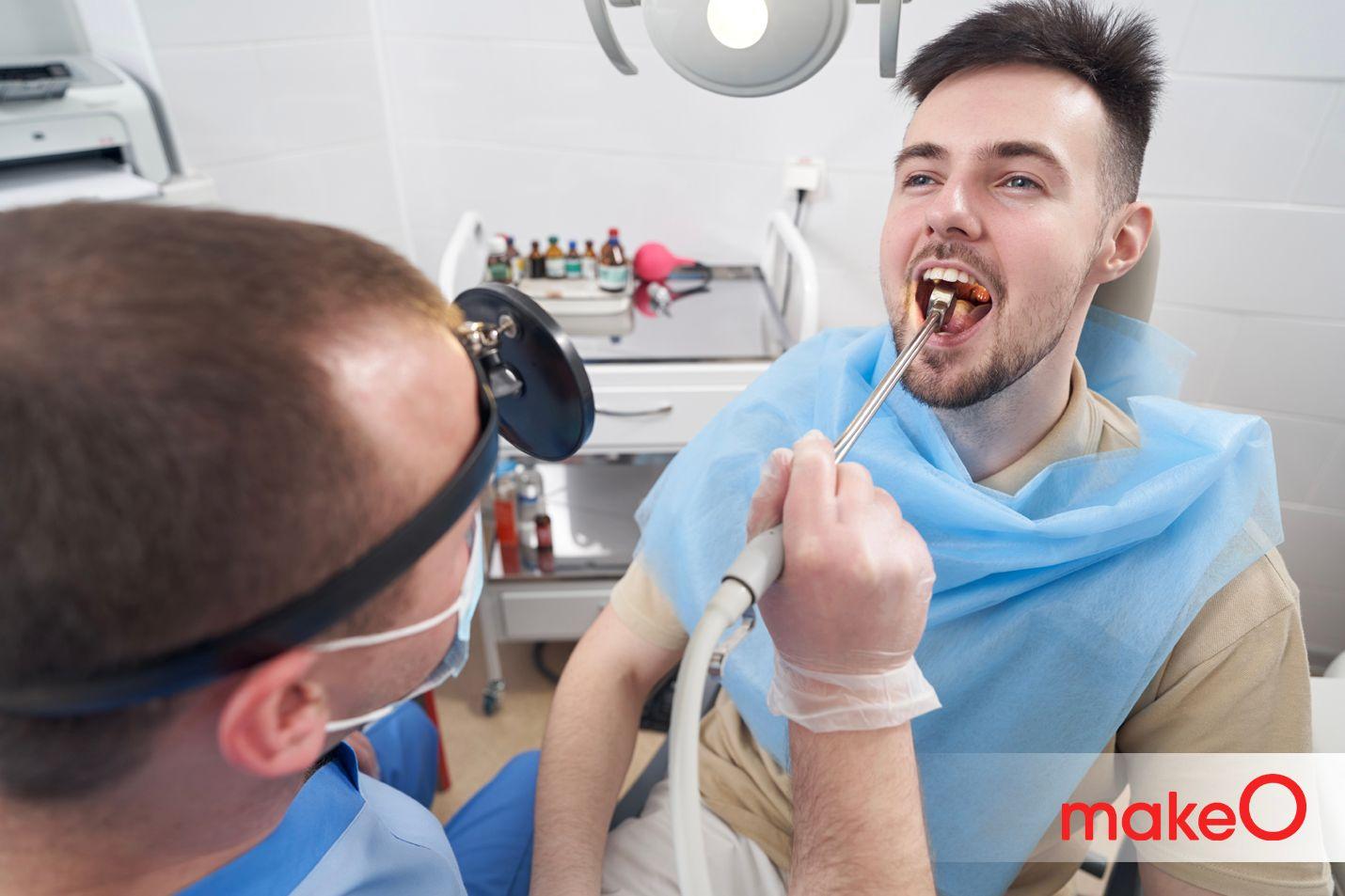MakeO blog
Painful, whitish yellow and deeply uncomfortable, mouth ulcers are sores found in the inside of the mouth. Generally, mouth sores are oval-shaped and have a red outline to them. Mouth ulcers are so common that most people of all ages get them often. We’re sure you remember a recent mouth ulcer that made your life difficult! In this article, we will explore what mouth ulcers are, their different types, reasons for occurrence, symptoms and treatment!
What are mouth sores or mouth ulcers?
Any sore that occurs in the soft tissue of your mouth which includes gums, inner lips, tongue and throat is called a mouth ulcer. While the exact reason why mouth sores occur is yet to be determined, trauma, stress, hormonal changes, oral tissue irritation and other factors can cause mouth ulcers.
Mouth sores are not caused by viral infections or bacterial infections and hence they are not infectious. They take about 1-2 weeks time to heal without treatment and can heal quicker if diagnosed.
What are the types of mouth ulcers?
You may think that all mouth ulcers are the same, but in reality, there are 3 main types of mouth ulcers with unique characteristics.
1. Minor Aphthous Ulcers
The most common type of ulcers, minor aphthous ulcers are small, yellow or white with 1 cm diameter or less. They are painful but they can heal within 1-2 weeks without scarring.
2. Major Aphthous Ulcers
This type of ulcer is not as common as minor aphthous ulcers, but far more severe. Also known as Sutton’s ulcer, it is larger, more painful, irregularly shaped and often exceeds the diameter of 1cm. This kind of ulcer takes weeks or months to heal and can even cause scarring.
3. Herpetiform Ulcers
While these are smaller ulcers, typically growing up to 1 millimetre, they are formed in groups which create a larger patch-looking area in your mouth. Though its name suggests that it is related to herpes, this kind of ulcer has no links with herpes and takes about 2 weeks to heal.
Mouth Sores Symptoms & Causes
How do you know when you are about to get a mouth ulcer? Well, there are some telling signs that you may notice. Here are some important mouth ulcer symptoms to look out for:
- Pain or discomfort while eating, drinking or speaking
- Sore or tender spots forming in your mouth
- Irritation inside your mouth or facing a burning sensation
- Sensitivity in the region where the ulcer is forming
- Swelling and inflammation
Now that you know how mouth ulcers can be detected, you must also know about the several mouth ulcer causes. Here are all the major reasons for mouth ulcer formation:
- Injury or trauma to the mouth can bring up mouth sores
- Consumption of citrus or acidic foods or hard food items can cause irritate the skin in the mouth and cause mouth sores
- Hormonal fluctuations during menstruation or pregnancy can also trigger mouth ulcers
- Genetics
- Stress, anxiety, fatigue and other emotional factors can also debilitate the immune system and cause sores in the mouth
- Deficiencies or immune system disorders can also be a cause for more mouth sores.
Mouth Sores Treatment
So how do you take care of the painful, patchy sore in your mouth once you have it? Well, most mouth ulcers heal on their own in 1-2 weeks. But, you can use these mouth sores treatment methods to reduce the discomfort and quicken the healing process:
- Over-the-counter medication like gels or ointments that contain ingredients like benzocaine or hydrocortisone reduce the pain of the ulcer
- Avoiding hard foods or acidic foods that can trigger irritation and sores in the mouth
- Use a good electric soft-bristled toothbrush like makeO toothsi electro to clean your teeth effectively and maintain your oral health along with a fluoride mouthwash to promote healing by eliminating all germs and bacteria.
- And if the sores get too painful, you can always opt for regular painkillers like ibuprofen to manage any inflammation, pain or discomfort.
When To Get In Touch With Your Doctor?
If you are facing painful mouth sores too often then it could be time to visit a doctor and understand the reason behind your ulcers. They will correctly assess the kind of ulcers you have, devise the right treatment plan for the same and help you from getting them in the future.
Ultimately, mouth sores or mouth ulcers are very common however there are ways to reduce the discomfort and pain by avoiding acidic food, taking over-the-counter medication and maintaining oral hygiene. To know more about dental health issues, aligners for treating teeth misalignment and effective oral care tips, visit makeO toothsi today!
FAQs
What causes sores in the mouth?
There is no single cause for mouth sores. However, there are a few factors that can lead to the formation of a mouth ulcer like
- Injury or trauma in the mouth
- Eating acidic foods that cause irritation
- Eating hard or abrasive items
- Stress
- Genetics
- Hormonal imbalance
What is the fastest way to heal mouth sores?
Use an over-the-counter gel or ointment directly on your mouth sore for it to heal faster. You can also use items like a medicated mouthwash, milk of magnesia, aloe vera etc.
Are mouth sores serious?
Generally, mouth sores or mouth ulcers are very common and people of all ages can get them. While most mouth ulcers are not serious, if you get mouth sores too often and they are too painful, then you may have to visit a healthcare professional!
How long do mouth sores last?
Mouth ulcers naturally heal themselves in 1-2 weeks without using any medication.
related categories
Related articles

Types of Braces: Removable vs Fixed Braces, Which is Right For You?

This Diwali, Smile Bright With makeO Teeth Whitening Kit

Dr. Pravin Shetty: Pioneer in Lingual Orthodontics & Innovative Smile Solutions
How do I Know I’m the Right Candidate for makeO toothsi Teeth Aligners?

